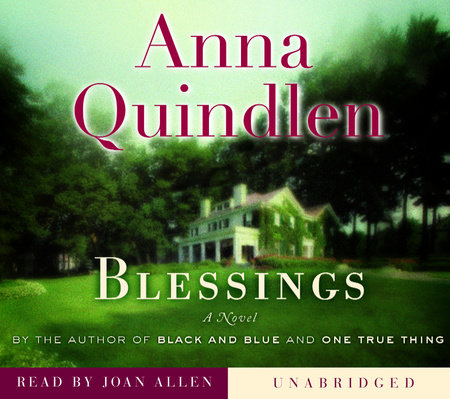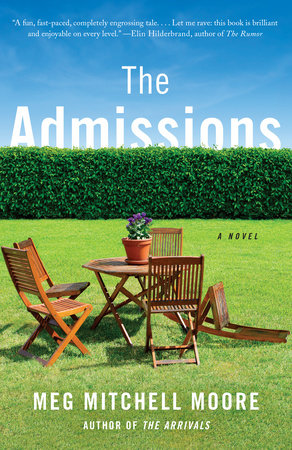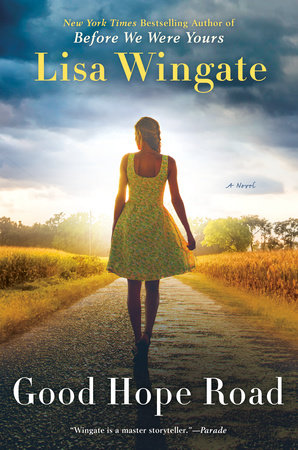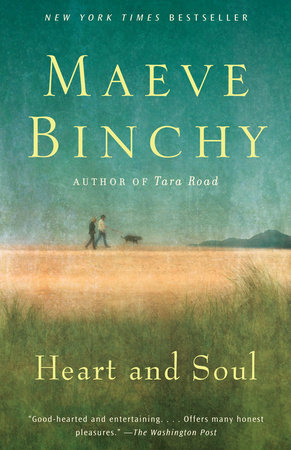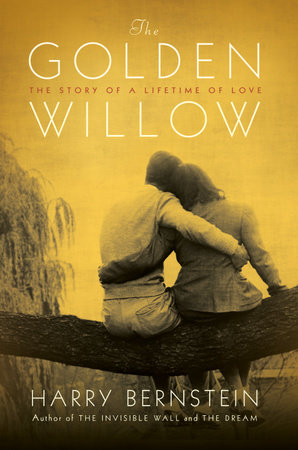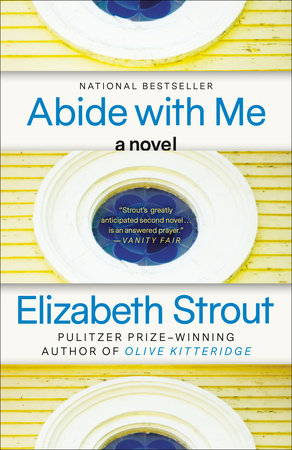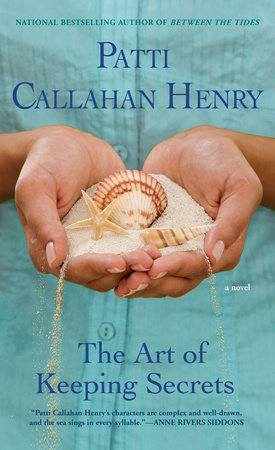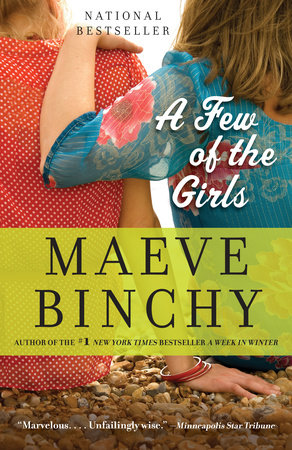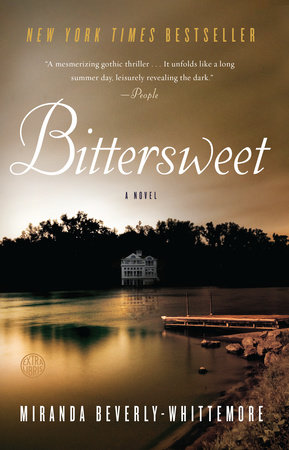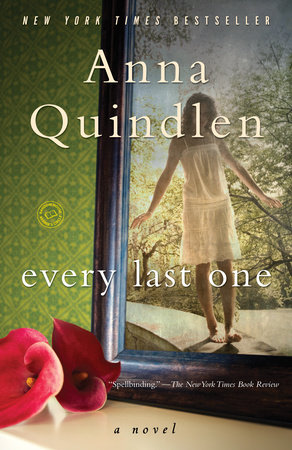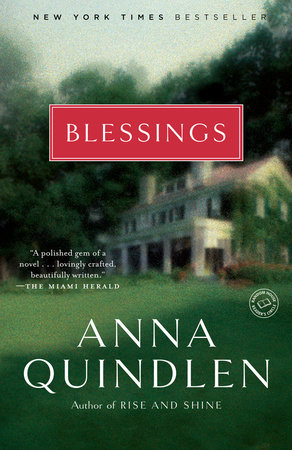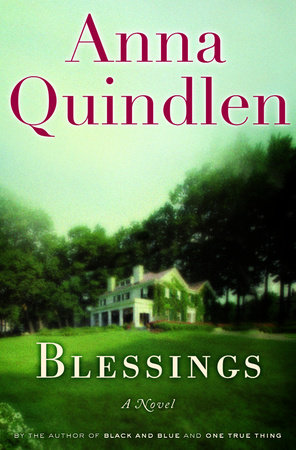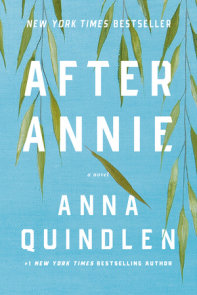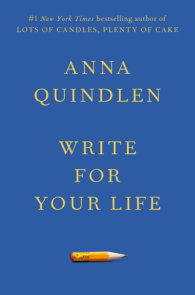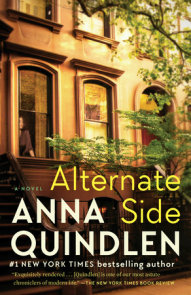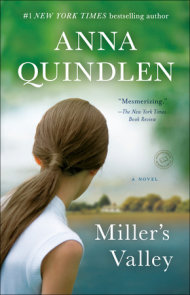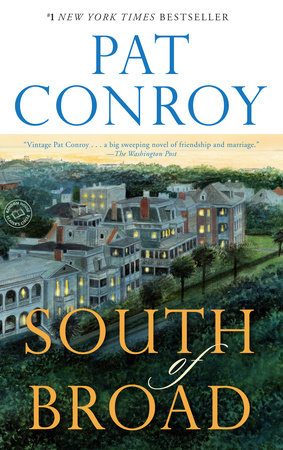Author Q&A
A Conversation with Anna Quindlen
Q: Was there a particular place that sparked the idea for you to write Blessings? Where or how do you find inspiration for your novels, and how do you move from that kernel of an idea to a fully-developed story?
A: The physical place called Blessings was very loosely based, when I began, on a place my husband and I have out in the country. But, as so often happens in novels, the fictional location very quickly outstripped the literal place and took on a life of its own. At a certain point, you say to yourself, well, I’m putting in a rose garden here or a pond there. There’s a kind of liberating moment in fiction writing when you realize you were sitting on a rock of real life and suddenly the creative imagination spreads its wings and lifts off. Most of those moments in this book came when I pushed away from a place I knew and took off for a place I invented and then came to know.
Q: In Blessings you address issues of great social importance regarding the formation and preservation of family. What opinions about the nature of family, the legitimacy of parenthood/childhood, and the bonds in community do you hope this book will convey? In your opinion who should have kept the baby?
A: I think nature/nurture questions are intrinsically interesting no matter which side of the fence you fall on. I think it’s clear that I believe the right of parenthood can be conferred simply by care and love. In some fashion Skip will always be Faith’s father, certainly more than her biological father. But one of the things he feels keenly is that blood has a strong pull, and that motherhood is powerful. And those sentiments lead to the action of the book, both for him and for Mrs. Blessing. I think Skip does the right thing within the moral context of everyday life. Whether it’s ultimately the right thing for Faith–well, only time will tell. I think doing the right thing is what this book is really about, and the sad true fact that you usually can only apprehend that in retrospect. Most of the good choices you make are by happenstance. I think that’s particularly clear here in Mrs. Blessing’s life.
Q: The secrets of the past and their effect on the actions of people in the present is a prevalent theme in this novel. What compelled you to give this idea such prominence?
A: I think all families have secrets. Some of them are benign, even positive; for instance, I think a healthy family might be one in which each of the children believes he or she is Mom’s favorite. And parents and children always keep a part of themselves secret from one another because they don’t want to upset or disappoint. The secrets are different than they were in Mrs. Blessing’s day, when everyone pretended they didn’t exist, when nine-pound babies were pronounced premature because they’d been born seven months after a wedding and gay men had to live shadow existences with wives and children. But more secrets are born out of love than out of shame, even today. That’s why Sunny and Benny don’t tell Lydia what she eventually discovers: because they adore her and don’t want to rock her world. By the time it is rocked, she’s ready for it. I think total honesty is overvalued. Sometimes it’s more important to be kind than to be honest. I know that’s unfashionable, but so be it.
Q: Writers are often told, “write what you know.” Blessings is told from two perspectives, those of both a young man and an elderly woman, two points of view unlike your own. How did you find and develop their voices in your writing? How did you go about developing a structure for the novel that would convey these two focal characters and the ideas about time and memory in a literarily tangible way? What were the difficulties or advantages of writing a book that incorporates storylines in both the past and the present?
A: Mrs. Blessing offered me an extraordinary opportunity, one that I’ve never had before as a writer. In sum, it was all there. What I mean by that is that usually when you’re writing about someone they are at a specific moment when they’re coming of age, or starting a family, or building a work life. But with a woman of 80, which is what Lydia Blessing is in this novel, you have it all: the young woman, the young wife, the mother, the middle-aged matron, the old woman. All of them are coexisting, at least in her mind. And so it’s such a rich vein to mine for the writer, except that most of it is backstory. That’s how elderly people live; as Lydia says at one point, the past dances with the present in your mind. One thing reminds you of another. Structurally it’s helpful if you can simply let your narrative meander in the way our memories do, and that’s what I tried to do here. Skip, on the other hand, is only 24. He has very little backstory, so most of the real action of the book coalesces around him. And that was convenient from a narrative standpoint as well. I’m not sure it would have worked if either character had been the only protagonist. But alternating the two of them seemed to offer me two different ways of telling the same story.
Q: The descriptions of Skip’s love for Faith are remarkable. How much did you draw on your own experience as a mother in writing about Faith?
A: Part of my struggle with Faith was that babies make lousy characters. There’s only so many ways they can hit themselves in the face before the reader has had enough of it. (I’m trying to think of a good baby in a book. Most of them are symbols of sexual license: “The Scarlet Letter” and so forth. They’re not real characters.) And while I was lucky and had very easy babies myself, I didn’t want her to be too angelic: hence the early scene in which she cries all night and throws up all over the bedroom. But my pediatrician always used to say that she saw an unmistakable link between those parents who loved their work, and those babies who were relatively easy to work with. Of course, Skip loves his work. As did I. However, my children are all teenagers now and I found that I’d forgotten a good bit about raising infants, probably because I was so sleep-deprived at the time. I cheated a little, used websites and baby books to keep track of the age at which Faith would have smiled and rolled over and slept through the night. I just love infants. Everyone projects onto them. And of course projection is a useful way of limning character.
Q: You are well known for crafting wonderful female characters, true heroines. Blessings was a departure for you in that the focal point of the story is a man, whom, by traditional standards, might be considered a bit unsual, in that he has an astonishing “maternal instinct.” How did you conceive of Skip, and what was it like to write him?
A: There are a lot of men like Skip, who are most comfortable in a nurturing role but simply aren’t given the opportunity to fill one. In fact he’s roughly patterned on my son Christopher, to whom the book is dedicated, who has that same combination of sweetness and care, integrity and honesty. I’ve had a history of being pretty tough on guys in my novels, although I redeemed myself somewhat in “Black and Blue” with the male teacher with whom Fran Flynn becomes involved. But even in that book the central male figure was so horrific that the gender balance of the book was off. I wanted to work it in a different way here, with a somewhat harsh and unlikeable female character–two, actually, if you count Nadine–and a warm and nurturing male character. Actually, my favorite character in the book is a man, Sunny Blessing, who I just find irresistible even if he’s a kind of vivid ghost. And I like Benny a lot, too. I suppose at some level the male characters in this novel are a testimonial to the fact that both my boys are now men, and pretty terrific men at that.
Q: What books have affected you (on both personal and professional levels) over the course of your life? What are you reading now?
A: Oh, I hate “best” lists. The book I’m recommending to everyone right now is “The Lovely Bones,” a first novel by Alice Sebold that is simply wonderful. It’s the story of a 14-year-old girl murdered by a neighbor and it’s told from her perspective as she looks down from heaven and watches her family try to go on without her. I think it’s going to be a great classic, one of those books people read for years because it’s so moving and true. I’m also rereading “Dombey and Sons” because I reread one long Dickens novel every summer. I always learn something about the use of detail, the description of minor characters and the marriage of social conscience and lively storytelling. Don DeLillo is the Dickens of our age; I thought “Underworld” was the most successful ambitious novel I’ve read in years. But you can’t discount the miniaturists. “Pride and Prejudice,” which I reread last summer, is still the perfect novel about how infuriating it can be to be female. Alice McDermott’s “Charming Billy” was a small book with the whole world inside.
Q: When incorporating theme and social reflection into a novel, are you conscious that you are doing it? Do you have messages you want to convey to your reader, or do they emerge on their own terms? What do you want readers to take away from this story and from your writing in general?
I must say I hate talking about my novels once they’re done. To begin with, so much of what I do is intuitive that I find it very difficult to explain or describe. And then I always find that readers find things in the book that I hadn’t really seen but that are indubitably true. So I’m happiest when people explain my work to me, rather than the other way around.
